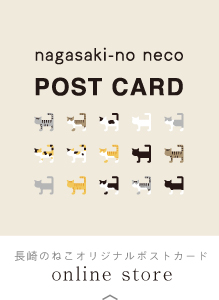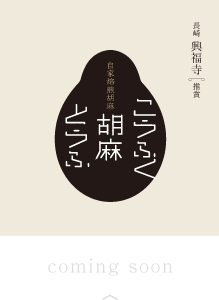
During Japan's period of isolation (sakoku – literally 'lock-up of country'), Nagasaki's Dejima (a man-made, fan-shaped island), was the only 'window' into Japan for a small number of foreign countries. As such, Dejima experienced something of a 'culture shock', with foreign influences meeting classical Japanese traditions. Dejima also played an important role as a gateway for importing new foodstuffs into Japan. It was where many everyday foods such as the potato, tomato, parsley, cabbage, chocolate etc - now considered the norm in modern-day Japan - first made their way into the country. In the 18th year of the Kanei period (1641), after a Dutch trading company was moved from Hirado to Nagasaki, Dejima began to play an important role in the modernization of Japan, as a base for trade and cultural exchange. On the other hand, as a result of the Tokugawa Shogunate's recommendation to the Japanese people that they learn a practical science, as well as the removal of the ban on studying foreign books, a lot of books were then written at Dejima. These became of great help towards developing various fields of study, such as medical science, astronomy and so on. Also, concepts such as logical thinking, freedom and equality, which had been promoted through Dutch studies, were a key contributing factor towards creating the end of Japan's Edo period, the downfall of the Tokugawa samurai Shogunate, and the ushering-in of a Western-style government. During the isolation period of Japan, many people (both within Japan and abroad) headed to Dejima, and thus Nagasaki, attracted by the prosperity of the small island, created by the continual trading and exchange of goods and merchandise taking place upon it. It is our company's primary aim to introduce, promote, and sell at lowest possible cost the exotic, delicious foodstuffs created over the centuries by the combined foreign/Japanese influences within Nagasaki and, especially, upon its famous Dejima Island. We are particular about providing only the very best service, and pride ourselves upon being leaders in our field.
鎖国時代、海外に向けて唯一開かれた窓であった長崎・出島は、当時の進歩的な人、モノ、文化が集まる場所でした。じゃがいもやパセリ、キャベツ、トマト、チョコレートなど、現代の日本で日常的に食べられている食品も、ここ出島に初めて伝わったものが多く、出島は食の玄関口としての役割も果たしていたといえるでしょう。 寛永18年(1641)に、平戸からオランダ商館を移転してからは、交易や文化交流の拠点として、わが国の近代化にとって重要な役割を果たしました出島。一方、幕府が実学を奨励して洋書を解禁した結果、出島からもたらされた書物は、医学、天文暦学などの研究を大いに発展させたほか、蘭学を通して育まれた合理的思考や自由、平等といった考え方は幕末の日本にも大きな影響を与えることとなりました。 株式会社 出島の蔵は、鎖国時代、多くの人々が目指し、集い、交流した長崎・出島の賑わいと、食文化の発信地であったことにちなみ、おいしいもの、健康に良いもの、付加価値の高いものを発信していきます。商品は私たち自身が製造に関わったものや、実際に食べたり試したりして惚れ込んだものだけを厳選しています。出島の蔵には私たちのこだわりがいっぱいに積み上げられているのです。








